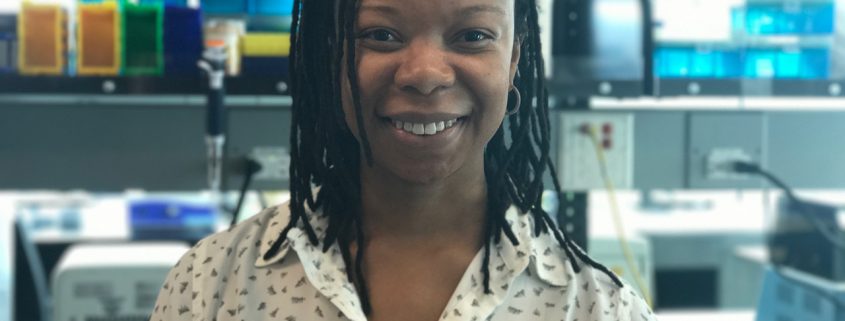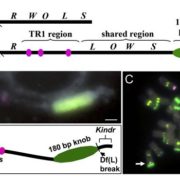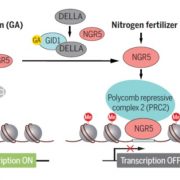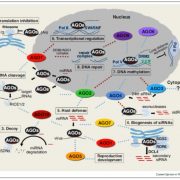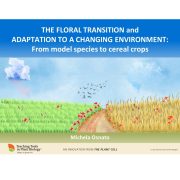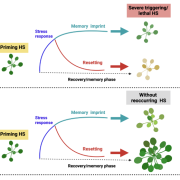URM Plant Scientist Highlights – Thelma Madzima (she/her)
Dr. Thelma Madzima (she/her) is one of very few Black faculty in the USA who are plant molecular biologists. Originally from Zimbabwe, Thelma immigrated to the US at the age of 17 to attend college. She received her B.S. in Plant Science and Plant Biotechnology from Fort Valley State University, a historically black university (HBCU), and received several awards in recognition of her academic record and research accomplishments. Thelma then attended the Plant Molecular and Cellular Biology program at the University of Florida (UF) for graduate school. She completed her Ph.D. under the mentorship of Dr. Kevin Folta, studying blue-light mediated regulation of transcript stability in Arabidopsis thaliana. During her graduate studies, she was an Alumni Association Graduate Research Fellow, received travel grants from UF’s Institute of Food and Agricultural Sciences (IFAS) and the American Society of Plant Biologists (ASPB), and presented four poster and two oral presentations. She then worked as a postdoctoral scholar with Dr. Karen McGinnis at Florida State University where she studied epigenetic modifications and their transcriptional effects in Zea mays (maize), before starting her current position in 2015 as an assistant professor of molecular biology at the University of Washington (UW) Bothell, a primarily undergraduate institution (PUI).
At UW Bothell, Thelma’s research program aims to understand how epigenetic mechanisms enable abiotic stress responses in plants, primarily using maize as a model. Specifically, she is interested in RNA-dependent DNA methylation (RdDM), where small RNAs can direct changes in cytosine methylation, chromatin structure, and gene expression. Thelma has received two research grants, from the BEACON Center for the Study of Evolution in Action and the University of Washington Bothell SRCP Seed Grant program, to support her research. Her most recent paper in Frontiers of Plant Science, describes transcriptional effects in response to abiotic stress in maize plants with and without RdDM activity (Madzima et al. 2021). Two undergraduates are co-authors of this paper, reflecting Thelma’s dedication to engaging undergraduates in research. To date, Thelma has mentored 28 undergraduates in their research at several universities.
Thelma’s support for diversity, equity, and inclusion (DEI) is also unparalleled. Throughout her academic career, she has been involved in outreach to K-12 students, judging science fairs and educating middle schoolers in science and mathematics, and has mentored underrepresented minority students through the ASPB Conviron Scholars program. She actively serves on DEI-centered committees for the plant science communities for which she is a member. Thelma co-developed an implicit bias and conscious inclusion workshop through ASPB, has written a commentary on inclusion efforts in professional societies (Madzima & MacIntosh, 2021), and received numerous grants to create communities of support among marginalized students and faculty at UW and in the Puget Sound area. This year, she received the Inclusive Service Award from the UW Bothell School of STEM in recognition of her outreach and service activities.
Thelma’s story as an academic in the US is not complete without discussing her status as a foreign-born scholar. Born in Zimbabwe, Thelma only became a US permanent resident late in her postdoc. International graduate students and postdocs, like Thelma, are not eligible for any federally funded scholarships and fellowships which are highly valued on the academic job market. Thelma is extremely passionate about raising awareness to this issue, especially when evaluating candidates for academic positions. Despite having fewer opportunities, Thelma has had numerous successes and achievements indicative of her research talents and passion for plant science and DEI.
References
Madzima, T.F. & MacIntosh, G.C. (2021). Equity, diversity, and inclusion efforts in professional societies: intention versus reaction. The Plant Cell, koab186. 10.1093/plcell/koab186.
Madzima TF, Stefania Vendramin S, Lynn J, Lemert P, Lu KC and McGinnis KM+. (2021). Direct and indirect transcriptional effects of abiotic stress in Zea mays plants defective in RNA-Directed DNA methylation. Frontiers in Plant Science – Plant Abiotic Stress. https://doi.org/10.3389/fpls.2021.694289
 This biography was written by Timber Burnette (they/them). They are currently a graduate student at the University of Montana with Dr. Anna Sala studying conifer reforestation into burned landscapes and how hotter, drier environmental conditions influence these conifer seedlings’ growth and survival. They are particularly interested in how carbon- and water-relations influence reforestation success, and through their research they hope to improve forest restoration outcomes in the Pacific Northwest.
This biography was written by Timber Burnette (they/them). They are currently a graduate student at the University of Montana with Dr. Anna Sala studying conifer reforestation into burned landscapes and how hotter, drier environmental conditions influence these conifer seedlings’ growth and survival. They are particularly interested in how carbon- and water-relations influence reforestation success, and through their research they hope to improve forest restoration outcomes in the Pacific Northwest.


